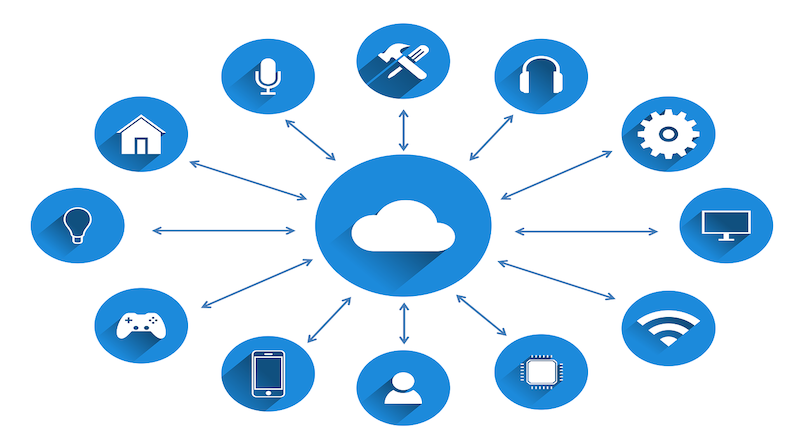Significance Of Private Clouds
The Covid-19 pandemic upended conventional views of how people work by forcing what appears to be the majority of humanity to work from home and utilize cloud-based services. In the history of the workplace, which was evolving at the fastest rate ever, the cloud helped hundreds of thousands of businesses and leveled the playing field. You can also look for Cheap Web Hosting In India.
Companies were able to use services like Google Meet, Gmail, Microsoft Office 365, and Microsoft Teams, as well as cloud storage from companies like Dropbox, OneDrive, or Google Drive, to keep their operations running and their employees employed. Best of all, most people did this at no extra cost.
While most people acknowledged that the cloud was a secure place to conduct business, Covid-19 demonstrated its effectiveness. However, some people were worried about the cloud’s open nature. Cloud computing services (such as Microsoft Azure, Google Cloud, AWS, etc.) are, by definition, “Public Clouds” that charge “tenants” for use of their accounts via a web browser.
These days, many businesses and people choose to use “Private Clouds,” just like in the past when security-conscious users used Intranets as private versions of the Internet.
A private cloud: What is it? What advantages are there?
Private Clouds are devoted to one particular customer, much like the Intranets of the past. Although the private cloud infrastructure might be located outside in third-party data centers, most private clouds make use of the on-site IT infrastructure of the host organization. They offer numerous advantages in terms of security and control as a result.
Control and Security.
Companies who are in complete control of their IT infrastructure can impose stricter limitations on who has access to the data stored there. The possibility of security vulnerabilities is clear given that businesses share resources in the Public Cloud. In the same vein, businesses do not have to worry about the physical security of their on-site servers thanks to an IT infrastructure they control access to.
Compliance.
Additionally, private clouds make it simpler for businesses to abide by the limitations and guidelines set forth by national governments and professional organizations. “Data Sovereignty” is a nice illustration of this. Many countries demand that the personal information of their constituents be kept on servers that are situated within their national borders.
Controlling where data is housed in a public cloud is quite challenging, but when a corporation can demonstrate the actual location of its data, compliance is considerably simpler. Similar to public clouds, private clouds are scalable and can accommodate an organization’s expanding computing and virtualization needs.
Cost
Many businesses are drawn to the business model used by the public cloud. CEOs and CFOs often see savings because you only pay for the resources you use. The Public Cloud must result in cost savings since it lacks redundancy. However, relying on a public cloud has fluctuating expenses, much like other utilities.
Costs are high when demand is strong. A public cloud may keep adding resources until requests are met in situations where, for example, badly developed software causes significant demands on infrastructure, and this may result in monthly/annual rates that are far higher than anticipated for businesses.
Private Clouds might utilize unused resources, but many businesses would rather know in advance how much their IT costs will be. Some businesses who move to private cloud solutions save up to 10 times the cost of public cloud solutions because they can decide when and how much to scale IT operations.
Customization.
Each tenant in public clouds receives the same resources. Therefore, a business must modify its IT infrastructure to work within the constraints of the services provided by its Public Cloud provider. A firm can create and implement the solutions needed to precisely fulfill their business needs with the help of a private cloud.
Business Resilience.
Public clouds are dependable, as demonstrated by Covid-19, with only infrequent outages. However, when they do, these disruptions can do major damage. AWS (Amazon Web Services) controls over 40% of the cloud computing market.
As a result, when they do experience an outage, a sizable portion of the Internet is affected.There is nothing you can do but wait until the cloud provider you are utilizing can restore services if your organization is dependent on a public cloud. However, businesses can prepare for these occurrences with a Private Cloud.
Conclusion.
Larger businesses are more likely to have onsite IT infrastructure than smaller ones. The benefits of a private cloud are numerous and clear if your firm is a specific size and you work in a sector that requires you to keep sensitive data related to you and your clients/customers.
Smaller players are compelled to use the public cloud because they simply cannot afford their own IT department, yet the benefits that public clouds provide for startups and smaller businesses much outweigh any potential hazards.


Pingback: ChatGPT: The Artificial Intelligence Language Model Revolutionizing Conversational Interfaces - Idiot Ace